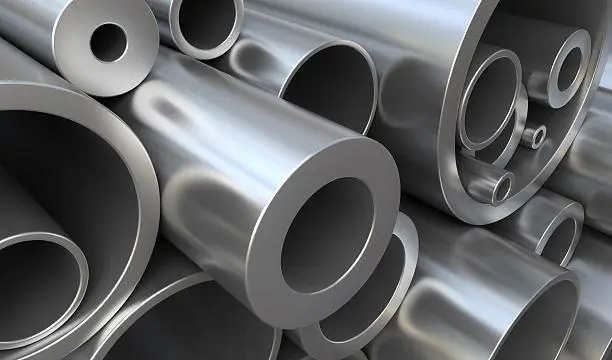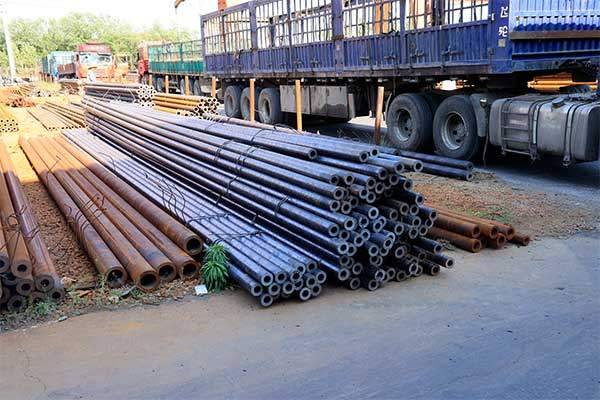Welcome to My Blog!
Before we dive into the content, I’d love for you to join me on my social media platforms where I share more insights, engage with the community, and post updates. Here’s how you can connect with me:
Facebook:https://www.facebook.com/profile.php?id=61559060896490
Now, let’s get started on our journey together. I hope you find the content here insightful, engaging, and valuable.
Introduction
Steel pipe plumbing has gained increasing popularity in various sectors, from residential homes to commercial buildings. In recent years, the benefits of steel pipe plumbing have made it a preferred choice for projects requiring durability, efficiency, and cost-effectiveness. This article explores why steel pipe plumbing might be the best choice for your next project and what makes it stand out from other plumbing options.

What is Steel Pipe Plumbing?
Steel pipe plumbing involves using steel pipes, typically made from materials such as carbon steel, stainless steel, or galvanized steel, to create a network that safely and efficiently transports water, gas, or waste. Steel pipes are known for their strength, versatility, and ability to withstand extreme conditions, making them suitable for various plumbing needs.
Types of Steel Pipes Used in Plumbing
Understanding the types of steel pipes available can help you choose the right one for your specific project.
| Type of Steel Pipe | Characteristics | Best Applications |
|---|---|---|
| Carbon Steel Pipe | Strong and durable; can handle high pressure | Industrial plumbing, water lines |
| Stainless Steel Pipe | Resistant to corrosion, flexible, and long-lasting | High-end residential, marine plumbing |
| Galvanized Steel Pipe | Coated to prevent rust; ideal for outdoor use | Outdoor plumbing, sewage systems |
The Advantages of Choosing Steel Pipe Plumbing
Steel pipe plumbing offers many advantages that make it an attractive choice for projects:
a. Durability
Steel pipes are extremely durable and can withstand both high pressure and extreme temperatures, making them ideal for demanding environments.
b. Corrosion Resistance
While some types of steel pipes, such as carbon steel, may require coating to prevent rust, options like stainless steel are inherently resistant to corrosion, extending the lifespan of the plumbing system.
c. Cost-Effectiveness
Though steel pipes may have a higher upfront cost than some other materials, their longevity and durability make them more cost-effective in the long run.
d. Sustainability
Steel is a recyclable material, making steel pipes a sustainable choice for projects focused on environmental responsibility.
e. High Pressure Tolerance
Steel pipes are capable of handling high-pressure fluids, which is crucial for industrial and commercial applications.
Common Applications of Steel Pipe Plumbing
Steel pipe plumbing is versatile and used across a range of applications:
- Residential Plumbing: Reliable for water and gas lines.
- Industrial Plumbing: Suitable for high-pressure and high-temperature environments.
- Commercial Plumbing: Frequently used in large-scale buildings and systems due to its strength and resistance.
- Sewage and Drainage Systems: Ideal for wastewater transport due to durability and corrosion resistance.
How to Install Steel Pipe Plumbing for Optimal Efficiency
Installation of steel pipe plumbing requires specific tools and techniques to ensure long-term performance and efficiency. Below are some essential steps:
Choosing the Right Steel Pipe
Select the appropriate type of steel pipe based on the project’s requirements.
Preparing the Installation Site
Ensure that the installation area is clear, and make any adjustments to allow for the correct positioning of pipes.
Cutting and Fitting Pipes
Using a pipe cutter, measure and cut the pipes as needed, ensuring they fit securely and leak-free.
Testing the Plumbing System
Once installed, check the entire system for leaks or weak connections before running high-pressure or hot water through it.
Steel Pipe Plumbing Maintenance Tips
To ensure the longevity of steel pipe plumbing, regular maintenance is necessary.
- Regular Inspections: Check pipes regularly for signs of corrosion, leaks, or weak points.
- Cleaning and Flushing: Periodically flush the pipes to remove sediment build-up.
- Corrosion Prevention: For carbon steel pipes, consider protective coatings or wrapping to prevent rust.
FAQ Section
What is the lifespan of steel pipe plumbing?
Steel pipes can last up to 50 years or more with proper maintenance, making them one of the most durable options available.
Can steel pipe plumbing be used in residential projects?
Yes, steel pipe plumbing is suitable for residential projects, particularly for homeowners who want a durable and reliable plumbing system.
Are steel pipes environmentally friendly?
Steel is recyclable, so it can be reused multiple times, making it a sustainable choice for plumbing.

Conclusion
When considering materials for plumbing, the decision to choose steel pipe plumbing comes with numerous benefits—durability, corrosion resistance, and cost-effectiveness. Whether for residential, commercial, or industrial applications, steel pipe plumbing provides a long-term solution that meets high standards of quality and efficiency. With proper installation and maintenance, steel pipes can support a dependable plumbing system for decades, proving to be an excellent choice for any project.




